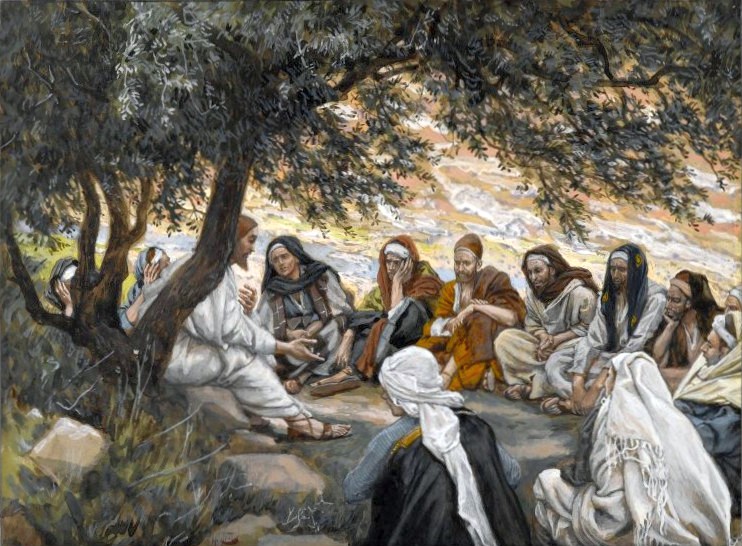
Christian Inclusivity
09-26-2021Weekly ReflectionFr. Bing ColasitoJesus tells in the Gospel last Sunday how to welcome the weakest members of the community. Whoever welcomes, one child such as this in my name, welcomes me; and whoever welcomes me, welcomes, not me but the One who sent me. The Gospel this Sunday picks up on this: John sees someone expelling an unclean spirit using the name of Jesus. The man is an outsider, the disciples tried to stop him, but Jesus says: Anyone who is not against us is with is. It’s easier for the disciples to accept a little child because they pose no threat to them. But welcoming another person practicing a powerful ministry who is not in their company is too much to accept. They think that exorcism is a privileged ministry for them alone. Their envy blinded them to the good works done by another person, not in their company.
Today, Jesus teaches us to give greater freedom to others in the work of God. In the Kingdom of God, the vineyard is vast, and many laborers of different charisms work to promote and advance the mission of Jesus. We are all laborers of the vineyard. No laborer holds absolute control over anyone and everything. And we cannot judge everything and everyone according to our standards and measures. That is why Jesus does not want His disciples to stop anyone doing good works for the Kingdom: Anyone who is not against us is with us. So, instead of wasting our time and energy opposing them, we should rejoice and be glad. Those who are not against us are coworkers in the vineyard. The vineyard is vast; let us pray to the Lord of the harvest to send more laborers.
One of the lessons we can learn from the Gospel is the old rule that says, by their fruit, you can tell them. Because a good tree does not bear bad fruit. A truth that comes from the doctrinal confession: This is how you can recognize the spirit of God. Every spirit that acknowledges Jesus Christ come into flesh belongs to God. (1Jn. 4:2) Let us not close our minds and hearts to new ideas and workers for the Kingdom. There are times when we are the ones who stifle ideas coming from the outside or another person. Jesus warns us of pretending to defend the Church and its teaching, but in fact, trying to protect our turf or interest. So that, instead of serving the Lord, we end up becoming too defensive in protecting ourselves from those who want to minister like us.
In the second half of the Gospel, Jesus tells His disciples to cut whatever causes them to sin or hinders them from truly following God. When it comes to sinning or causing grave scandal, Jesus teaches us to be radical and give no concessions. All things that lead to sin and cause scandals are contrary to God’s plan. They are offenses against the community as well. In the early years of the Christian Church, old members take extra care of new members like a precious treasure. For the Church to grow and become dynamic: Those in the leadership should learn to cultivate and nurture new ideas from new and young members of their communities. How this dynamic will play in the community; depend on how the elders care for new members. This care holds the key to the growth and survival of the Church.
Jesus reminds His disciples that those who follow Him will experience trials and victories, persecutions and affirmations, temptations and resolutions. Every disciple experiences the good, bad, happy, sad, darkness, and light in the ministry. In our journey to God’s heart, Jesus invites us to take the road of goodness, justice, and righteousness, no matter what. The Gospel challenges disciples to learn to be open and work as a team. Work with different cultures, races, creeds, and religions. As they say: No one holds the monopoly of the truth. But those who are humble, respectful, listening, and inclusive are not far from the truth. Christian inclusivity based on the practice of understanding, compassion, and love makes the hearts grow greater
BACK TO LIST